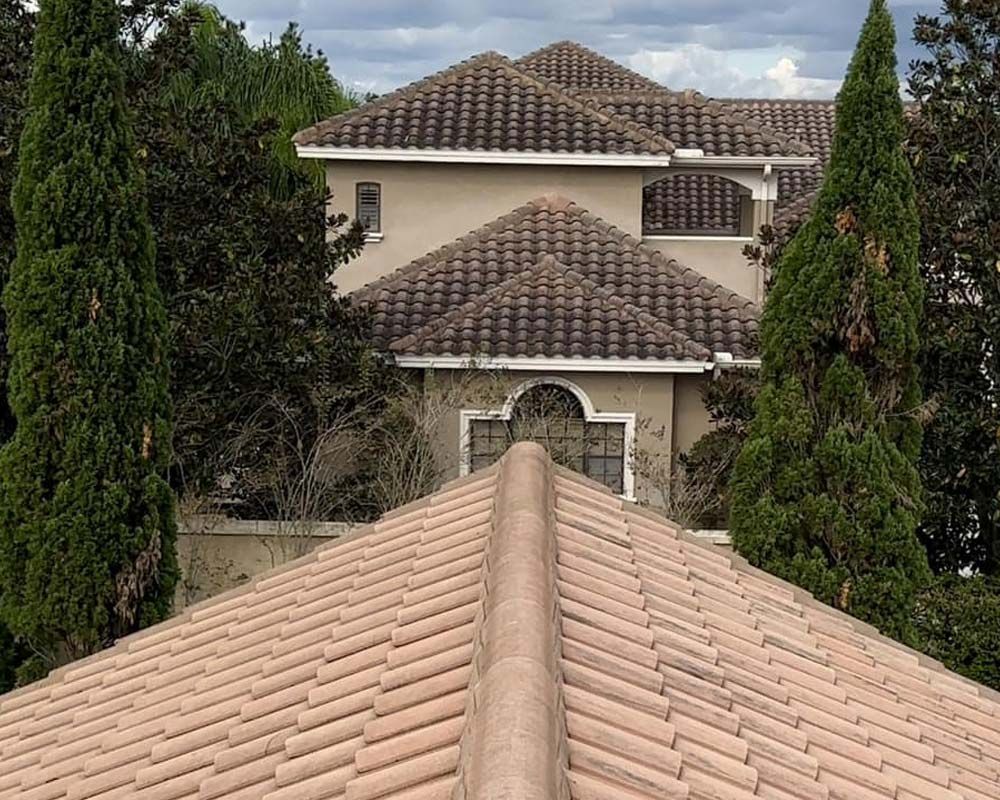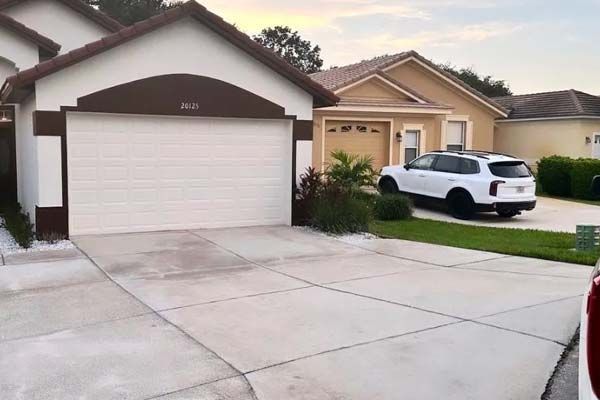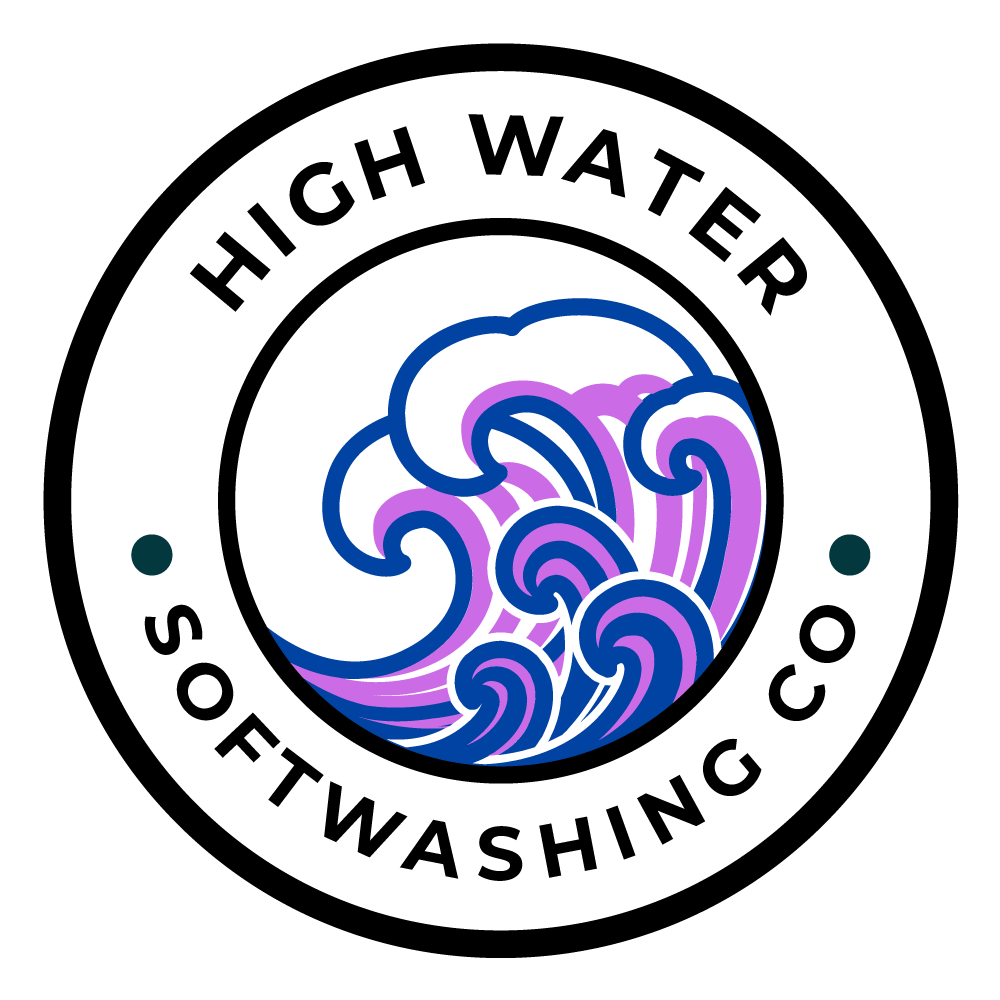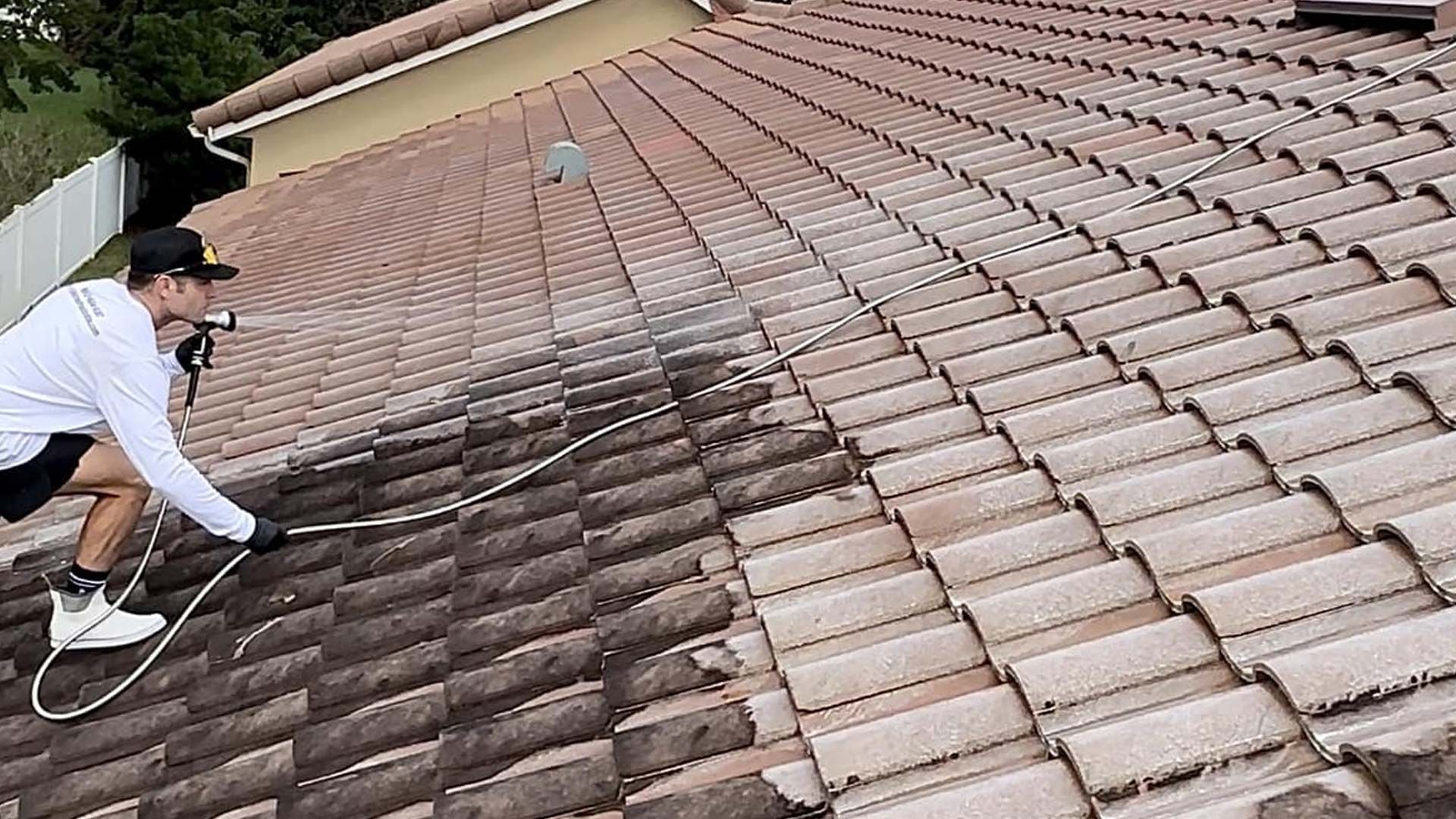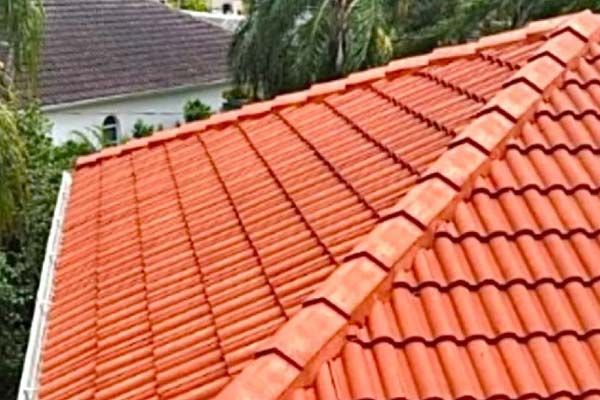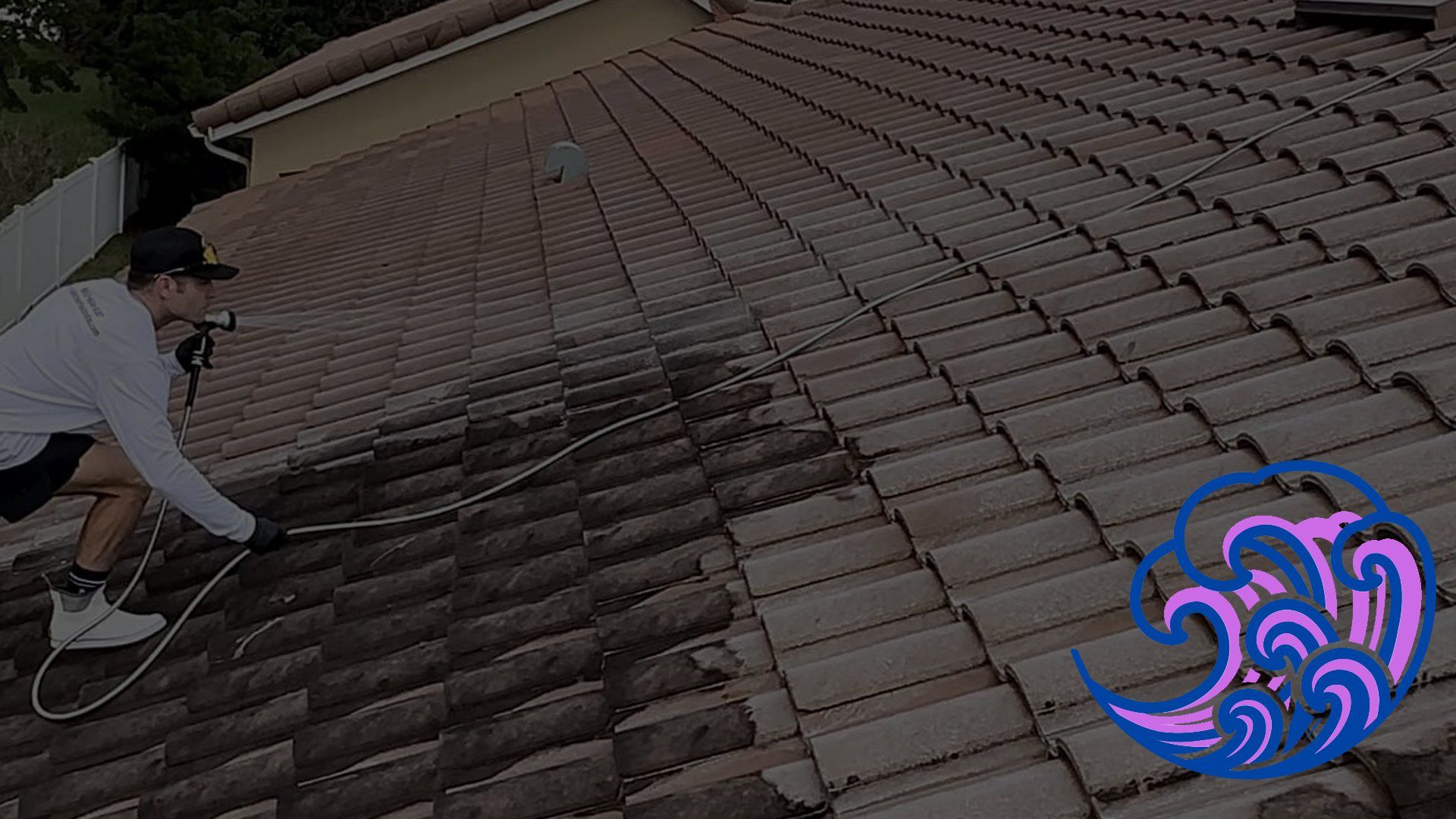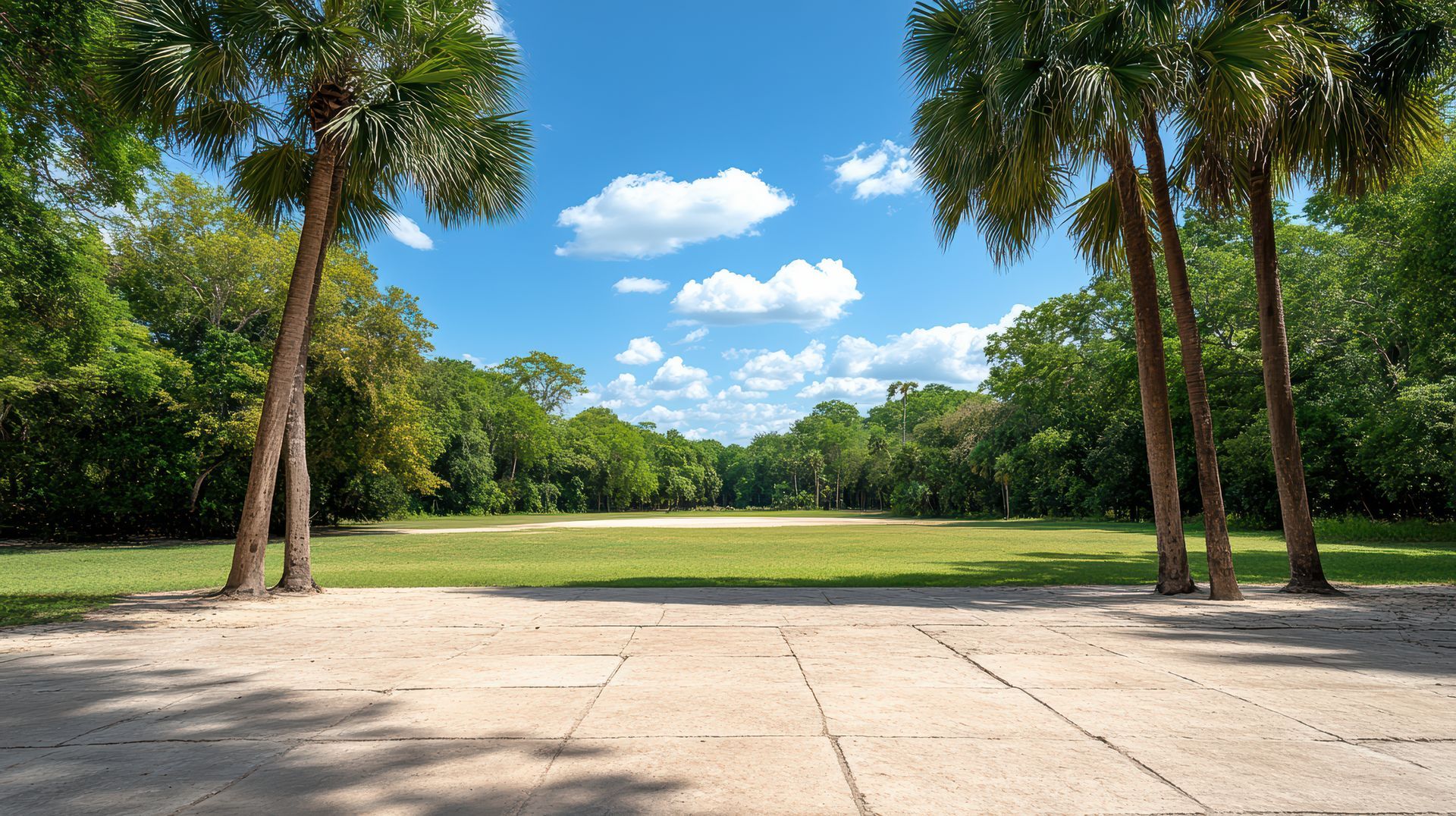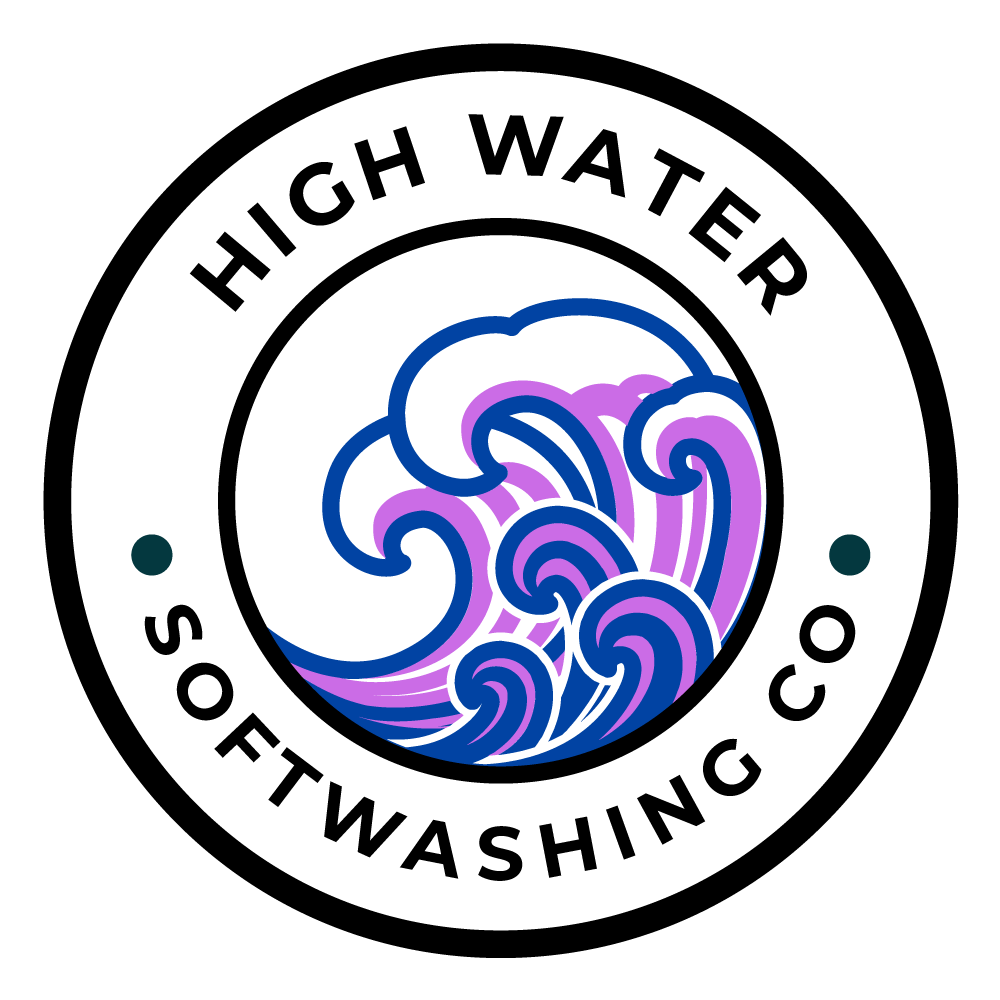How We Clean Roofs, Driveways and Home Exteriors
Roof, Home Exterior and Driveway Cleaning is what we do. We gain satisfaction from taking your home from dirty to sparkling clean, and we know the best ways to do it.
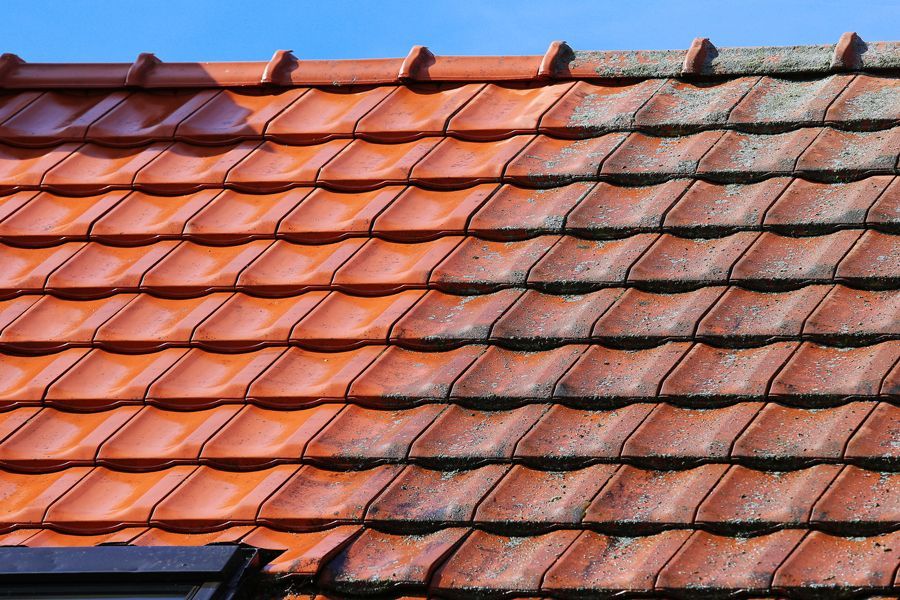
At High Water Softwashing Co., we don’t believe in one-size-fits-all solutions. Every surface on your property—from your roof to your driveway to your siding—requires a different approach to achieve a truly deep, safe, and lasting clean. That’s why we tailor our services using the right tools and techniques for each job. Our goal? Restore beauty, extend longevity, and keep your home looking its absolute best—without causing damage in the process.
In this post, we’re breaking down the most common surfaces we clean, the tools we typically use for each one, and why. We’ll also explain those rare exceptions—those times when we might choose a different technique based on the surface material, age, or condition.
1. Roofs – Soft Washing Only
Your roof might look tough, but it’s actually one of the most delicate surfaces on your home. Asphalt shingles, tile, and even metal roofs can all be easily damaged by high pressure. That’s why we use soft washing for roof cleaning—always.
Soft washing involves low-pressure water combined with environmentally-safe detergents that kill mold, algae, mildew, and other biological growth at the root. This technique is not only gentler, it’s also more effective long-term. While pressure washing may blast away surface stains, soft washing actually treats the underlying cause, helping prevent regrowth.
Why we rarely make an exception:
We almost never use high pressure on roofs. The only time we might use slightly elevated pressure is on certain commercial metal roofing with heavy buildup, but even then, it’s controlled and carefully monitored.
2. Driveways and Concrete – Pressure Washing
Concrete is one of the toughest materials on your property, which makes it a perfect candidate for pressure washing. Driveways, sidewalks, and walkways collect dirt, oil stains, algae, and even rust. Pressure washing uses high-powered water to cut through all of it, leaving the surface clean, restored, and much safer to walk on.
We typically use surface cleaners with a rotating nozzle to evenly distribute pressure and avoid striping. We’ll also pre-treat oil or rust stains with specialized cleaners to give you the best results possible.
Why we might go softer:
If your concrete is very old or has visible cracks, we may dial back the pressure or use a soft wash pre-treatment followed by a light rinse. Our priority is always long-term durability over instant gratification.
3. Siding – Usually Soft Washed, Sometimes Pressure Washed
Siding varies widely by material—vinyl, wood, Hardie board, stucco, and more—which is why we adapt our approach depending on the specific case. In most situations, we use soft washing to protect your siding from damage and oxidation.
For example, vinyl siding can warp under high heat and pressure. Wood siding can splinter or absorb water if blasted too hard. Soft washing uses detergents that break down organic buildup like algae, mildew, and dirt while preserving the integrity of your home’s exterior.
When we might pressure wash siding:
If the siding is made from brick or durable masonry and has deeply embedded grime or graffiti, pressure washing may be more effective. In those cases, we test a small area first and adjust our tools accordingly to avoid unnecessary wear.
4. Pool Decks and Lanais – Pressure Washing with Care
Pool areas are constantly exposed to water, chemicals, and organic matter like leaves and pollen. These areas require a careful touch. We typically use medium-pressure washing with eco-friendly solutions to clean pool decks, screened lanais, and patio furniture.
Tile and concrete can handle more pressure, but painted surfaces, caulking, or soft grout need a gentle approach. That’s why we often combine soft wash techniques and surface cleaning tools to get the job done right.
5. Fencing – Tailored by Material
Wooden fences are soft washed to avoid splintering or striping. Vinyl fencing can be pressure washed but often responds beautifully to soft washing. We evaluate the condition and age of your fencing before choosing the best method.
How We Decide
Every project begins with a thorough inspection. We look at the material, age, exposure, level of dirt or damage, and even the landscaping around it. This helps us decide not just what tools to use, but also how to use them safely and effectively.
We train our team to switch between methods fluidly. In one visit, we might soft wash your roof, pressure wash your driveway, and gently rinse your lanai—all with separate equipment and tailored cleaners. It’s this precision that sets us apart.
Trust the Experts
At High Water Softwashing Co., we’re not just pointing a hose and hoping for the best. We’re trained professionals with a deep understanding of how different surfaces respond to pressure, chemicals, and water. Your home deserves thoughtful care, and that’s exactly what we deliver.
Whether you're battling algae on your shingles or rust on your driveway, we’ll bring the right tools—and the right touch—for the job. Call us today for a free quote and let us help your home shine again.
GET A FREE ESTIMATE HERE
GIVE US A CALL
We're looking forward to helping your home shine and extending its lifetime. Reach out to us.
